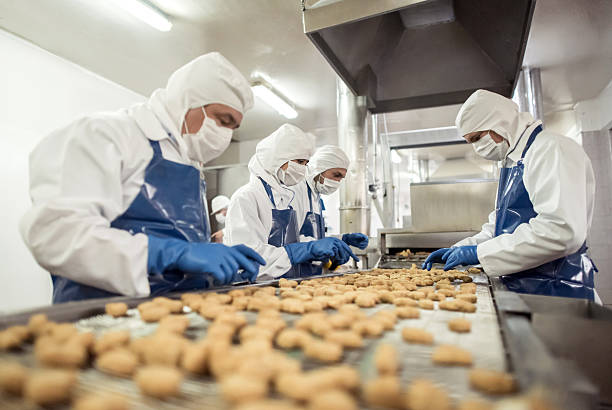In the food industry, implementing safe practices and manufacturing quality products has always been the goal of many companies. Over the years, we have developed an established set of safety and health regulations that food companies must follow to ensure maximum protection for customers and employees. That's why we believe PPE for food industry is so important.
In this article, we'll discuss some topics about safety and PPE for the food industry. Read on to learn more.
In the food industry, most hazards come from the production or processing floor. Providing PPE to employees involved in production is a must for every food company. This not only ensures the safety of employees but also helps maintain the working environment.
Some of the common hazards that PPE for food industry can protect workers from are:
-Chemicals. Chemicals used for cleaning or processing can cause burns and respiratory problems if they come in contact with a worker's skin or eyes.
-Heat. High heat can cause burns, especially when combined with water.
-Sharp objects. Knives and other cutting tools are sharp and should be handled with care by anyone who comes in contact with them.
Workers can still be injured on the job, but PPE can make the injury less fatal. If an accident occurs, the most important thing is still to get the worker treated as soon as possible.

Common PPE for food industry include:
1. Gloves - These gloves protect workers' hands from injury on the one hand, and ensure hygiene during food production on the other. Food safety gloves are usually disposable and made of latex or nitrile rubber. Reusable gloves are also available, usually made of nitrile rubber, neoprene or polyvinyl chloride (PVC).
2. Workwear - From time to time when handling raw meat, poultry or seafood, crumbs or other things can splash. If any animal body fluids or tissues come into direct contact with an employee's skin or everyday clothing, this can lead to problems such as the spread of bacteria. Therefore, workwear (or protective clothing) should be included as a basic food industry PPE for workers to wear exclusively in food production areas. Clothing should also be easily disinfected for washing, or disposable protective clothing should be prepared.
3. Masks - Masks serve two purposes, one is to prevent airborne contaminants, such as dust and vapors, from entering the worker's respiratory tract. The other is to prevent human droplets from coming into contact with food and to ensure hygiene.
4. Work Shoes - Work shoes are required to protect the feet from cuts, scrapes and other injuries. Slip resistance can also be achieved by wearing work shoes when walking on some surfaces where liquids may be present.
The food industry is not only a major contributor to the economy, it is also an important part of our lives. Therefore, PPE in the food industry is very important for companies to pay attention to. Without them, there is no way to ensure that workers in the food industry can work with peace of mind and safety.
There are many factors to consider when choosing PPE for food industry, including:
-The nature of the activity. The more physically demanding the task, the more protection is required.
-Duration. Longer exposure times require better protection from heat and cold (especially if refrigeration is not available).
-Cost. Providing quality PPE for all employees requires a large budget. But in the long run, it's still a worthwhile investment compared to the potential loss in the event of a safety incident. Companies can choose cost-effective security products, but should always make sure they are adequate and meet security standards.
Copyright © Hebei Sinotools Industrial Co.,Ltd. All Rights Reserved | Powered by  Sitemap
Sitemap